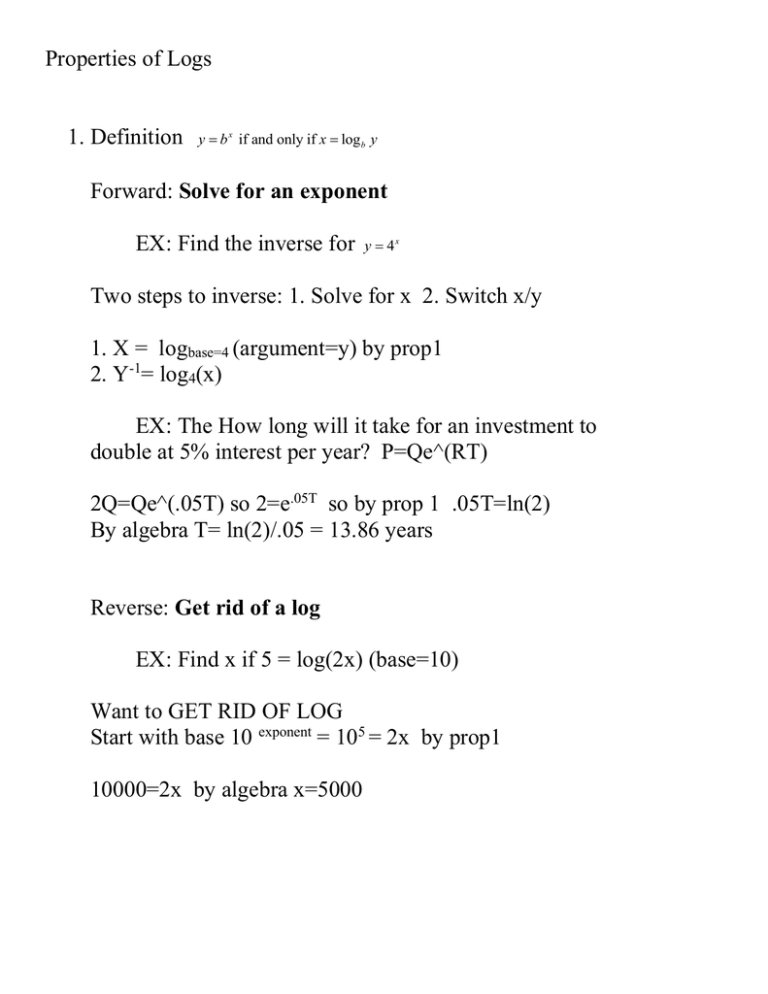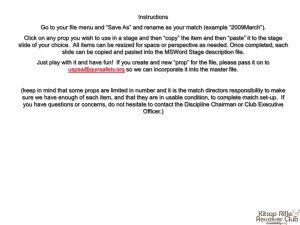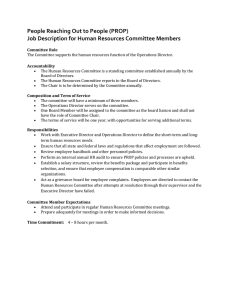Properties of Logs 1. Definition Solve for an exponent
advertisement

Properties of Logs 1. Definition y b x if and only if x log b y Forward: Solve for an exponent EX: Find the inverse for y 4x Two steps to inverse: 1. Solve for x 2. Switch x/y 1. X = logbase=4 (argument=y) by prop1 2. Y-1= log4(x) EX: The How long will it take for an investment to double at 5% interest per year? P=Qe^(RT) 2Q=Qe^(.05T) so 2=e.05T so by prop 1 .05T=ln(2) By algebra T= ln(2)/.05 = 13.86 years Reverse: Get rid of a log EX: Find x if 5 = log(2x) (base=10) Want to GET RID OF LOG Start with base 10 exponent = 105 = 2x by prop1 10000=2x by algebra x=5000 2. Sum/Product Property Forward: Combine logs logA+logB=log(AB) EX: Find a single log for ln2+ln5 = ln(10) by prop 2 log25+log4 = log(100) by prop 2 or 2 Reverse: Find the components of a log EX: Use table of logs to find log11= log(10*1.1)= log(10)+log(1.1) =1+0.0414..= 1.0414 log(12000)= log(1.2*10^5)= log(1.2)+log(10^5) =5+0.0792..= 5.0792 3. “Ladder” Property n log b x log b x n Forward: Get rid of a coefficient EX: Find 3log4+2log5 = log 43 + log 52 by prop 3 = log(43*52) by prop 2 Reverse: Get rid of an exponent inside a log EX: Find log 4 =50000 log24 by prop 3 = 50000*2 =100000 50000 2 4. Change of Base log b x log a x log a b Forward: Evaluate a old bases in terms of a new one EX: Find log 2 4 log 2 4 log(4) ln(4) 2 log(2) ln(2) = we have ln and log in calculator By prop 4 Reverse: Divide logs of a same base to get a single log EX: Simplify ln(100)/ln10 = log(100) by prop4 5. Log of Both Sides x y iff log b x log b y Forward: Take the log of both sides Reverse: Drop the logs from both sides EX: If log x = log 40 find x. Then x= 40 by prop 5


